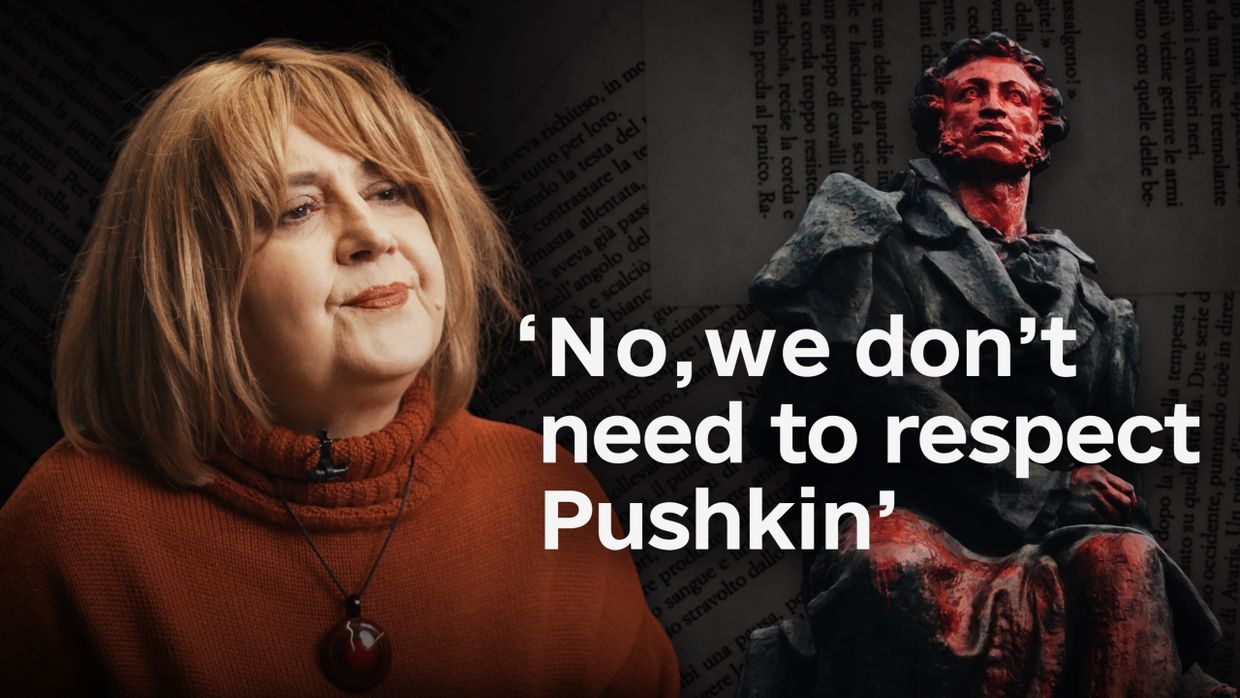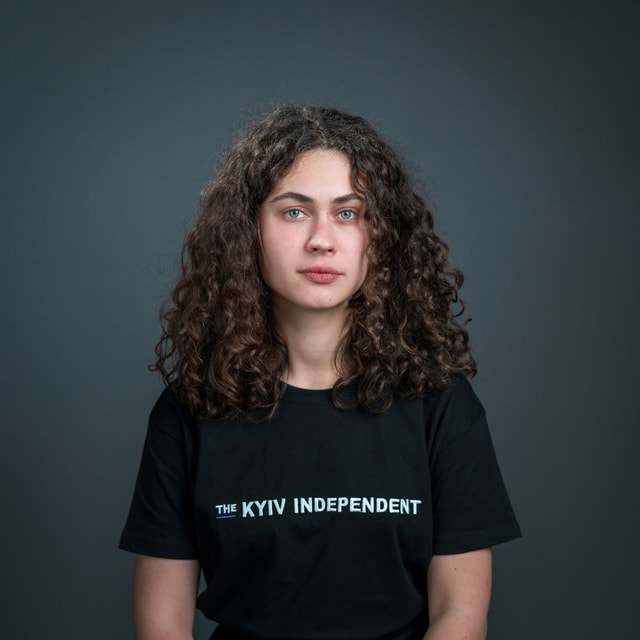‘This cannot be allowed’ — Israeli opera hires Russian singers, Ukrainian director quits in protest

Ukrainian theater director Eugene Lavrenchuk has declined to stage an opera at the Jerusalem Lyric Opera & Festival after the organizers brought in Russian singers despite his objections. (Facebook / The Kyiv Independent)
A Ukrainian theater director has refused to stage an opera at the Jerusalem Lyric Opera Studio & Festival in Israel after the organizers of the event hired Russian singers against his wishes.
Eugene Lavrenchuk explained the reason behind his decision in a post on Facebook on April 28, confirming that he would no longer have a role in the staging of George Handel's opera "Rinaldo," the premiere of which is scheduled for July 21 in Tel Aviv.
"Russia is a country that killed millions of people and became known for its brilliant ballet and operas," Lavrenchuk told the Kyiv Independent. "This legitimized Abkhazia, Chechnya, the war in Ukraine, and all the executions, concentration camps, and repressions. Russia did this in (Pyotr) Tchaikovsky's time as well."
"Let Russia return the occupied territories and drown in sanctions, and then fine, I'll be the first to stage Tchaikovsky," he added.
Lavrenchuk told the Kyiv Independent that when he took on the project, he had only one condition for the organizers — no one from Russia could be a member of the cast, even asking for it to be a clause in his contract.
Though it was not written in the contract, Lavrenchuk said the organizers assured him his request would be honored, but when he was sent the text for a promotional poster, it contained the names of two Russian singers among the cast.
"When I noticed the unfamiliar names of singers I had not selected, I thought I had just missed something. But before waving my sword, I decided to check the Facebook pages of these two opera singers. Both are from Russia,” Lavrenchuk told the Kyiv Independent.
"The organizers said (the singers) have Israeli passports, but this does not negate the fact that they publicly position themselves as Russians on social media," he added.
Lavrenchuk asked the Kyiv Independent not to name the opera singers to protect them from backlash.
"It is not acceptable for me, as a Ukrainian living in the war, to work with people who are presented as Russians."
The Kyiv Independent could not verify the citizenship of the two singers, but according to their Facebook pages, both studied in Moscow. One’s bio states she lives in Moscow. In 2016, she sang songs about war for Russia's Victory Day, celebrated each year on May 9, and shared photos from Crimea in 2019, visiting it after Russia’s occupation.
"The beautiful life in Crimea," she wrote in the caption.
Despite already working remotely from Lviv, Ukraine, on the opera for months, selecting actors from "all over the world," forming a team, and even preparing some of the stage costumes, Lavrenchuk resigned from the project on April 8.


"It is not acceptable for me, as a Ukrainian living in the war, to work with people who are presented as Russians," Lavrenchuk said.
"Today, we cannot stand on the same stage with Russians, regardless of the context, because other people will use it to legitimize the friendship of (Ukrainian and Russian) peoples. One will say that politicians are fighting somewhere else, but the ordinary people are Slavic brothers. This cannot be allowed."
Representatives of the Jerusalem Lyric Opera Studio & Festival, an artistic non-profit organizing opera events, defended their decision to include Russians in the production in a statement emailed to the Kyiv Independent on May 2, saying they "can't accept ultimatums" from artists.
"Our decisions are based solely on artistic excellence, not on nationality, citizenship, or political affiliation," the statement reads.
The Jerusalem Lyric Opera Studio & Festival representatives also pointed out that they organized a solidarity concert in support of the Ukrainian people in May 2022, "in response to the war in Ukraine," and they "stand by that act."
"At the same time, we believe that art must remain a space free from political or national discrimination," they said. "The artists in question are Israeli citizens currently living and working in Israel. While they may hold dual citizenship or have outdated information on their social media profiles, they were selected purely on the basis of their artistic talent and professionalism."
"We regret that Mr. Lavrenchuk chose to withdraw from the production and respect his personal convictions," the statement adds. "However, we cannot accept ultimatums that require us to exclude artists based on their citizenship or place of birth."
Following Lavrenchuk’s decision, the rest of the Ukrainians in the team, including the actor Vladyslav Shkarupilo who was supposed to play the central role of Goffredo, also refused to participate.
"At first, there were no problems at all (with the organizers) — everything was as friendly and professional as possible," Shkarupilo told the Kyiv Independent. "But it was a bit improper of the administration to not coordinate these soloists with either the director or the conductor."
For a 24-year-old actor building a career, performing in Rinaldo with Lavrenchuk was a "dream" opportunity, but he felt he had no option but to step down from the role.
"Maybe this is incorrect, but I would like to say that if they don't care who performs, then let's invite some soloists from Gaza or Afghanistan (to the Israeli stage)," he said, alleging that in that case Israeli organizers would have been more sensitive to mixing up soloists of different origin on the cast.
"This is music, this is art, this is something high. Unfortunately, this problem concerns only us. Of course, there are a lot of colleagues in solidarity who understand the difference between Ukraine and Russia," he added.
Lavrenchuk highlighted Israel's own boycotts of works by the German composer Richard Wagner.
"Wagner had nothing to do with the fact that Hitler used his music. But for some reason, out of respect for the Holocaust (victims), Wagner’s operas were not performed in Israel for a long time. Because you have to respect people and humanity," he said.
Despite the turmoil, the opera is still going ahead as planned. On April 16 the Jerusalem Lyric Opera & Festival announced they had hired a replacement for Lavrenchuk — Russian director Daniil Dmitriev.











